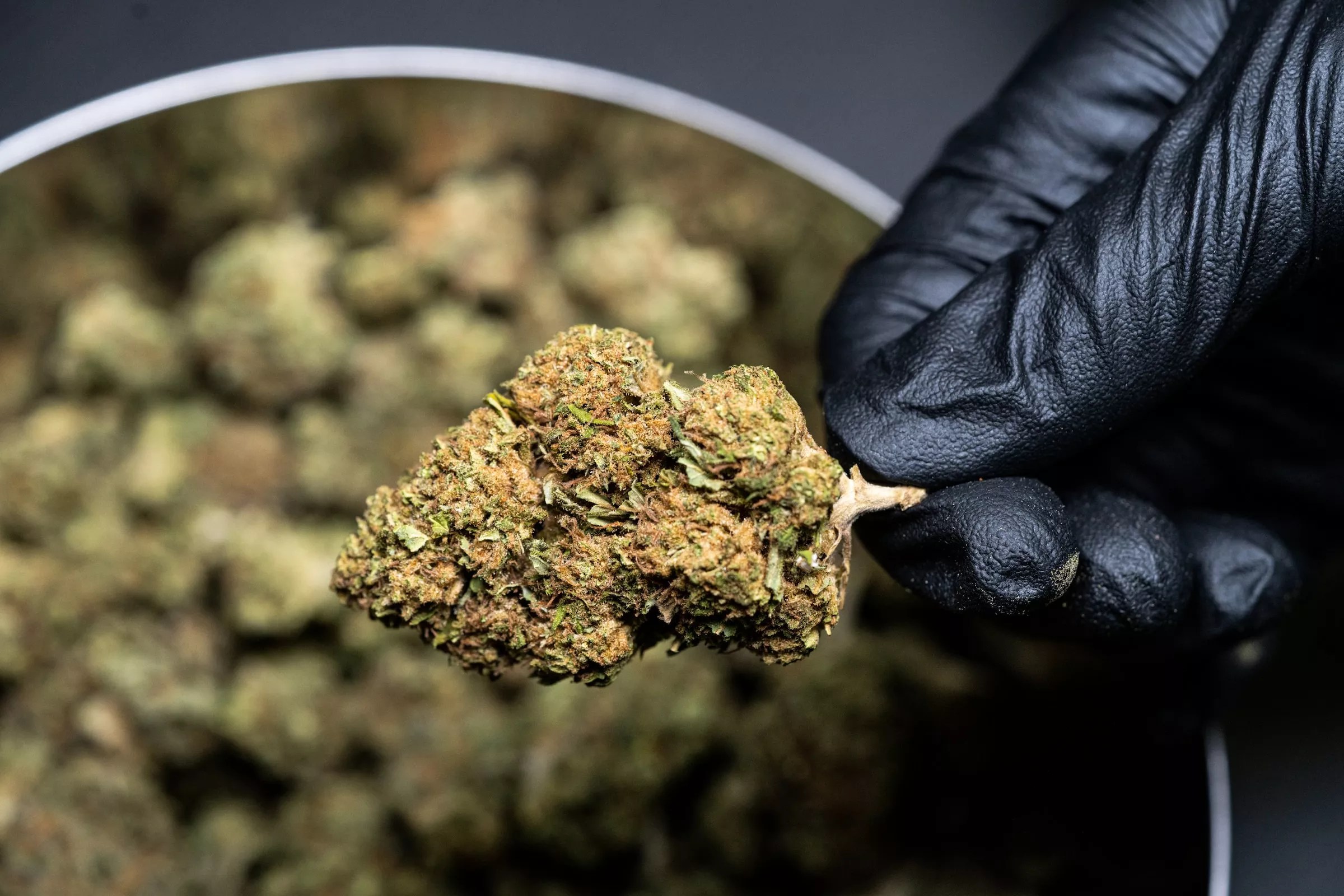
Unsplash/Crystalweed Cannabis

Audio By Carbonatix
A handful of new rules and laws affecting Colorado’s marijuana industry take effect today, January 8.
The changes are the result of annual rulemaking meetings with various marijuana business owners, public health officials, other cannabis stakeholders and the Colorado Marijuana Enforcement Division; several other new requirements, such as product best-by dates, took effect January 1.
The new laws involve decontaminated weed definitions and guardrails, increased purchasing limits and loosened rules for the sharing of genetic materials such as seeds and clones.
New Decontamination Rules
Commercial marijuana is subject to testing for contaminants such as mold, pesticides and heavy metals in Colorado, but marijuana that fails testing is allowed to be decontaminated and then sold to consumers. Until the latest round of rulemaking, however, the MED hadn’t declared or defined acceptable decontamination techniques. Ozone treatment, pasteurization, vaporized hydrogen peroxide and irradiation from X-rays, microwaves and ultraviolet light are all now acceptable forms of cannabis product decontamination, according to the MED. The new rules require marijuana facilities to note if and how any product was decontaminated, as well.
An additional regulation will take effect in 2025, requiring that marijuana products that failed testing before decontamination be labeled with a symbol or notification for consumers; the lag time is “to provide sufficient time for the development and implementation,” according to MED deputy director Kyle Lambert. Some growers put their marijuana through similar processes before testing to ensure decontamination and lab approval; these products would not be labeled.
Expanded Genetic Sourcing
Because of marijuana’s federal prohibition, Colorado marijuana growers have long remained quiet about how they obtain their seeds and immature plants, especially if the strain originated from another state. After the feds eased up on the sale and sharing of marijuana seeds and immature plants in 2022 because of hemp legalization, Colorado lawmakers finally followed suit.
Senate Bill 23-271, a measure intended to further restrict intoxicating hemp products in Colorado, also gives medical and recreational marijuana businesses the ability to send and accept seeds, clones and genetic material from new sources, including from other commercial marijuana facilities in Colorado and in other states where the plant is legal. Colorado marijuana growers can also accept seeds and clones from individuals who are registered or licensed to work in the regulated marijuana industry in Colorado or other states where it is legal.
Growers who receive new genetic material must maintain records that document the genetic material’s chain of custody, according to the MED, with invoices required for the origin of the genetics and proof that it came from an approved source.
Higher Cannabis Bar Purchase Limits
Cannabis hospitality businesses in Colorado currently fall into two tiers: lounges operating under a bring-your-own model and establishments allowing sales, similar to the regulations involving bars. Previously, that second category had allowed visitors ages 21 and up to buy up to two grams of cannabis flower, 0.5 grams of hash, or an edible with ten milligrams of THC, with all products required to be consumed or thrown away on site before the customer left.
After going back and forth with industry representatives and youth-use prevention groups, the MED agreed to allow properly licensed hospitality businesses to instead sell up to one ounce of flower, eight grams of concentrates or edibles containing 100 milligrams of THC, amounts similar to Colorado’s daily sales limits at recreational dispensaries.
There are three businesses licensed for hospitality and micro-sales in Colorado. Only one, JAD’s Mile High Smoke in unincorporated Adams County, is currently operating. The other two venues, a lounge on East Colfax Avenue and a spa and outdoor patio space in south Denver, haven’t yet announced opening dates.